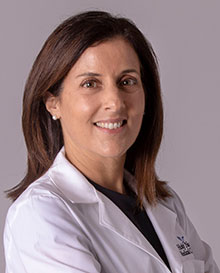Contact Us
Dietary detoxes and nutritional cleanses have recently exploded in popularity, and are especially common after periods of indulgence like the holiday season. While the concept of "detoxifying" can seem straightforward, it's important to understand which detox methods are beneficial and which have no impact at all—or those that could have negative effects.
“It's essential to acknowledge that our bodies are incredibly efficient at self-cleaning. Our liver, kidneys, digestive system, and even our skin, work tirelessly to eliminate toxins,” says Debbie Bessen, a registered dietitian with Holy Name. “So, the idea that we need to drastically or repeatedly detoxify our bodies is more myth than reality. However “detox” plans as part of more general lifestyle changes can be quite beneficial.”
A common example of a dietary detox would be eliminating entirely certain types of processed food or alcohol for a set amount of time after a period of overconsumption. Adopting a detox plan can be a helpful part of resetting dietary habits and establishing a broader health routine. “It's less about purging a specific amount of toxins and more about giving your body a needed break from harmful substances,” says Debbie Bessen, a registered dietitian with Holy Name.
What Should a Healthy Dietary Detox Include? A medically-based detox routine should focus on hydration, consuming whole and unprocessed foods, and increasing intake of fruits, vegetables, and fiber. It should also include avoiding consumption of a specific substance that can negatively impact health, like alcohol, caffeine, and refined sugars for several days or more. This approach will help support the body's natural detoxification process rather than attempting to replace it.
What Are Common Misconceptions About Detoxes? Beware of extreme detox diets that promise rapid weight loss, claim to cleanse specific organs, or include ingesting amounts of nutritional supplements not recommended by your physician. These can be harmful and aren't supported by scientific evidence. For instance, the idea of 'detoxifying' the liver with a special diet or cleanse is unnecessary and potentially dangerous, as extreme diets can actually impair liver function.
Who Should Consider a Detox? Almost anyone can benefit from making healthier food choices and reducing their intake of processed foods and alcohol. However, it's important to approach this with balance. People with certain medical conditions, pregnant women, and children should not embark on restrictive detox diets, and anyone considering a dietary detox should first consult with their physician or registered dietician.
While the body is equipped with a natural detoxification system, adopting reasonable "detox" methods in consultation with a healthcare professional and as part of a healthy lifestyle can really benefit overall health and well-being. Remember, the best 'detox' is a long-term, sustainable approach to health, rather than hoping for a quick fix.
For more information about our nutrition services call 201-227-6040 or email [email protected].


